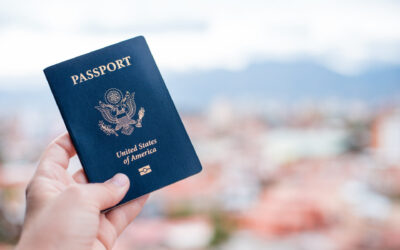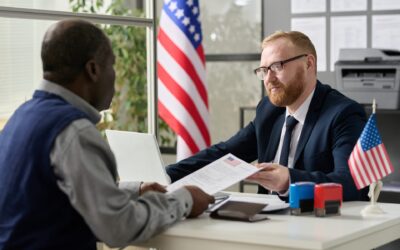What is VAWA?
Congress initially passed the Violence Against Women Act (VAWA) in 1994. It helped to create and fund programs to effectively respond to sexual assault, domestic violence, stalking, and dating violence. As part of VAWA, a special path to lawful immigration was created for individuals who have suffered domestic abuse at the hands of a US Citizen or Green Card holder. In the past, these individuals had to depend on their abusers to file for immigration status on their behalf, which gave the abusers a great deal of power over their lives.
Under VAWA, abuse victims can now self-petition to update their legal status without participation from their abuser. However, self-petitioners under VAWA must meet certain specifications and provide sufficient supporting documentation. This can prove challenging for many immigrants. A knowledgeable VAWA lawyer can explain more about the self-petitioning process and how to overcome some of the common challenges.
Who is Eligible for a VAWA Self-Petition?
Despite having the word “women” in the title, VAWA self-petitions are open to persons of any gender and age who have experienced domestic abuse.

To file a VAWA self-petition, you must meet the three following criteria:
- Demonstrate a qualifying relationship with your abuser: To be eligible for VAWA, you must show that you had a qualifying relationship with a US citizen or green card holder. Legal marriage is the most common relationship for VAWA applicants and can include those in same-sex marriages. However, children, step-children, parents, and step-parents can also qualify. Depending on their circumstances, recently divorced or widowed individuals may also be eligible. If you have questions about your eligibility, you should contact an immigration lawyer for more information.
- Provide proof of battery or extreme cruelty: It’s important to remember that physical violence isn’t the only form of domestic abuse. Emotional abuse, sexual violence, exploitation, threats, financial abuse, abuse towards your children, and other forms of harm by your abuser may make you eligible for VAWA.
- Possess “good moral character”: While the law doesn’t specify what good moral character is, it lists actions that could potentially bar you from application. For example, a criminal record might disqualify you. However, if the disqualifying acts resulted from your abuse, you may be able to get a waiver. A VAWA lawyer can assist you if you have concerns about this aspect of your petition.
What Supporting Evidence Do You Need to Provide for VAWA?
To file a VAWA self-petition, you must complete Form I-360 and provide documentation to support your petition. Some of the supporting information you will need to compile includes:
- Proof of your abuser’s citizenship or green card status.
- Proof of your relationship to the abuser, such as marriage documents or a birth certificate.
- Evidence that you lived with your abuser for a period of time, such as address records with your name on them, a joint rental agreement, or utility bills.
- Proof that you entered the marriage in good faith and did not do so solely for a green card. You may present documents describing your courtship or evidence of a shared life, such as joint financial endeavors like credit cards or property leases.
- Your account of the abuse you suffered.
- Evidence of the abuse, including police records, medical documents, witness testimony, or affidavits from professionals with knowledge of the abuse (such as therapists, police officers, or clergy).
- Proof of your moral character. Character references from others, criminal background checks, and evidence of positive community involvement can all be used to demonstrate your character.
Why is It Sometimes Difficult to Get a VAWA Self-Petition Approved?
The VAWA self-petition requires a great deal of supporting documentation, but individuals in an abusive relationship can be very limited in their ability to collect information about their abusers and their situation. They generally do not want to risk alerting the abuser to their actions for fear of escalated violence. Other individuals aware of the abuse may be hesitant to assist if they also fear backlash from the violent individual.
Additionally, the abuser may intentionally restrict access to documents to maintain control over their victim. It can be challenging to prove the validity of your marriage or your abuser’s citizenship to the government without certain documents. If you can access immigration petitions you have already filed, they may contain some of the information you need. Alternatively, an immigration lawyer can work to collect the necessary documents on your behalf.

Sadly, proving abuse can also be difficult, particularly if you suffer from non-physical abuse or do not have police reports or medical documentation available. Many abuse victims are isolated from friends and the community by their abusers. If you are uncertain how to document or prove your experiences, you can contact an immigration lawyer or local domestic violence center, which can provide you with resources and help.
How Can a Lawyer Assist You to Overcome Common VAWA Challenges?
While the services of an immigration lawyer are not required for a VAWA self-petition, it is highly recommended that you seek legal counsel to give yourself the best possible chance at a successful outcome. An immigration lawyer understands the details of the process and can help you with many aspects of your petition, including:
- Organizing information: The self-petition form can be very confusing if you do not have a legal background. An experienced lawyer knows what information is required and can ensure you meet all the requirements and present a strong petition.
- Persuasive writing: Your petition will include a personal statement about the abuse that occurred to you. While this should be in your own words, your lawyer can give advice on how to craft the document to present the clearest picture of the abuse you experienced.
- Requesting documents on your behalf: Your lawyer can receive and handle all correspondence with government agencies. They will work to recover the required documents in a way that does not alert your abuser to your actions.
- Guiding you through the rest of the immigration process if your petition is successful: The VAWA self-petition is just the first step toward citizenship. Your lawyer can ensure that the rest of the process goes smoothly.
If you are considering a VAWA self-petition, contact McGuire Law LLC today to schedule a confidential initial case evaluation: 720-922-2988.






